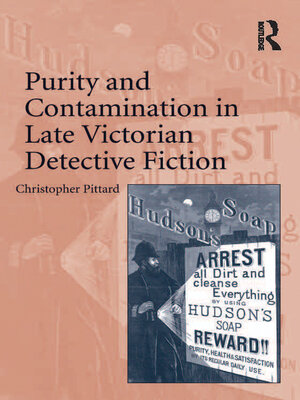
Sign up to save your library
With an OverDrive account, you can save your favorite libraries for at-a-glance information about availability. Find out more about OverDrive accounts.
Find this title in Libby, the library reading app by OverDrive.



Search for a digital library with this title
Title found at these libraries:
| Library Name | Distance |
|---|---|
| Loading... |
Concentrating on works by authors such as Fergus Hume, Arthur Conan Doyle, Grant Allen, L.T. Meade, and Marie Belloc Lowndes, Christopher Pittard explores the complex relation between the emergence of detective fictions in the 1880s and 1890s and the concept of purity. The centrality of material and moral purity as a theme of the genre, Pittard argues, both reflected and satirised a contemporary discourse of degeneration in which criminality was equated with dirt and disease and where national boundaries were guarded against the threat of the criminal foreigner. Situating his discussion within the ideologies underpinning George Newnes's Strand Magazine as well as a wide range of nonfiction texts, Pittard demonstrates that the genre was a response to the seductive and impure delights associated with sensation and gothic novels. Further, Pittard suggests that criticism of detective fiction has in turn become obsessed with the idea of purity, thus illustrating how a genre concerned with policing the impure itself became subject to the same fear of contamination. Contributing to the richness of Pittard's project are his discussions of the convergence of medical discourse and detective fiction in the 1890s, including the way social protest movements like the antivivisectionist campaigns and medical explorations of criminality raised questions related to moral purity.







